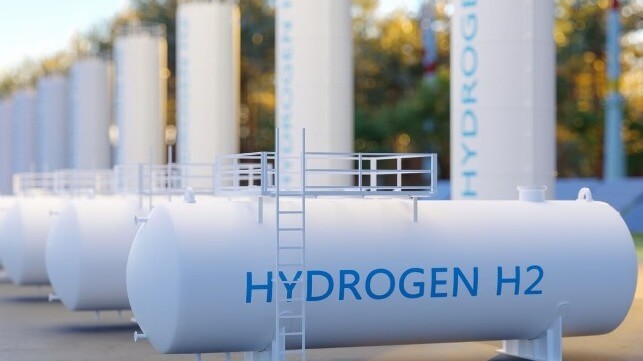EU Commits $7B in Funding for Hydrogen Terminals, Pipelines and Plants

The European Union is planning to spend more than $7 billion to develop a sprawling system for the generation, importation and distribution of green hydrogen. The cross-border, industrial-scale scheme will underwrite port operations, pipeline transport and manufacturing for a new hydrogen energy supply chain. It is the first time that the European Commission has committed support for hydrogen infrastructure under the Important Projects of Common European Interest (IPCEI), which allows the EC to accelerate permitting and funding.
The now-approved Hy2Infra package contains 33 projects proposed by France, Germany, Italy, the Netherlands, Poland, Portugal, and Slovakia. Taken together, this portfolio of projects will link these seven nations together with 1,700 miles of hydrogen gas pipeline, provide for gas storage facilities, and help pay for 3.2 gigawatts of electrolyzer capacity for green hydrogen production. The $7.4 billion in government investment should attract nearly $6 billion from the private sector.
"Hy2Infra will deploy the initial building blocks of an integrated and open renewable hydrogen network," said top EU competition regulator Margrethe Vestager. "This [Important Project of Common European Interest] will establish the first regional infrastructure clusters in several Member States and prepare the ground for future interconnections across Europe."
Since some of Europe's consumption will be supplied from abroad, the plan calls for building new receiving terminals for hydrogen carriers - specifically, vessels built to transport hydrogen that has been dissolved in an organic liquid. The terminal complexes will be scaled to handle 6,000 tonnes of hydrogen per year. This is a small-scale deposit towards the eventual plan to import 10 million tonnes per year by 2030.

that matters most
Get the latest maritime news delivered to your inbox daily.
Hy2Infra will dovetail with other large-scale hydrogen generation and pipeline projects already in motion in the EU.
"This is a major step on our way to building a fully fledged, Europe-wide hydrogen infrastructure network, though there is still a long way to go," said Stephen Jackson, deputy CEO at industry body Hydrogen Europe.
